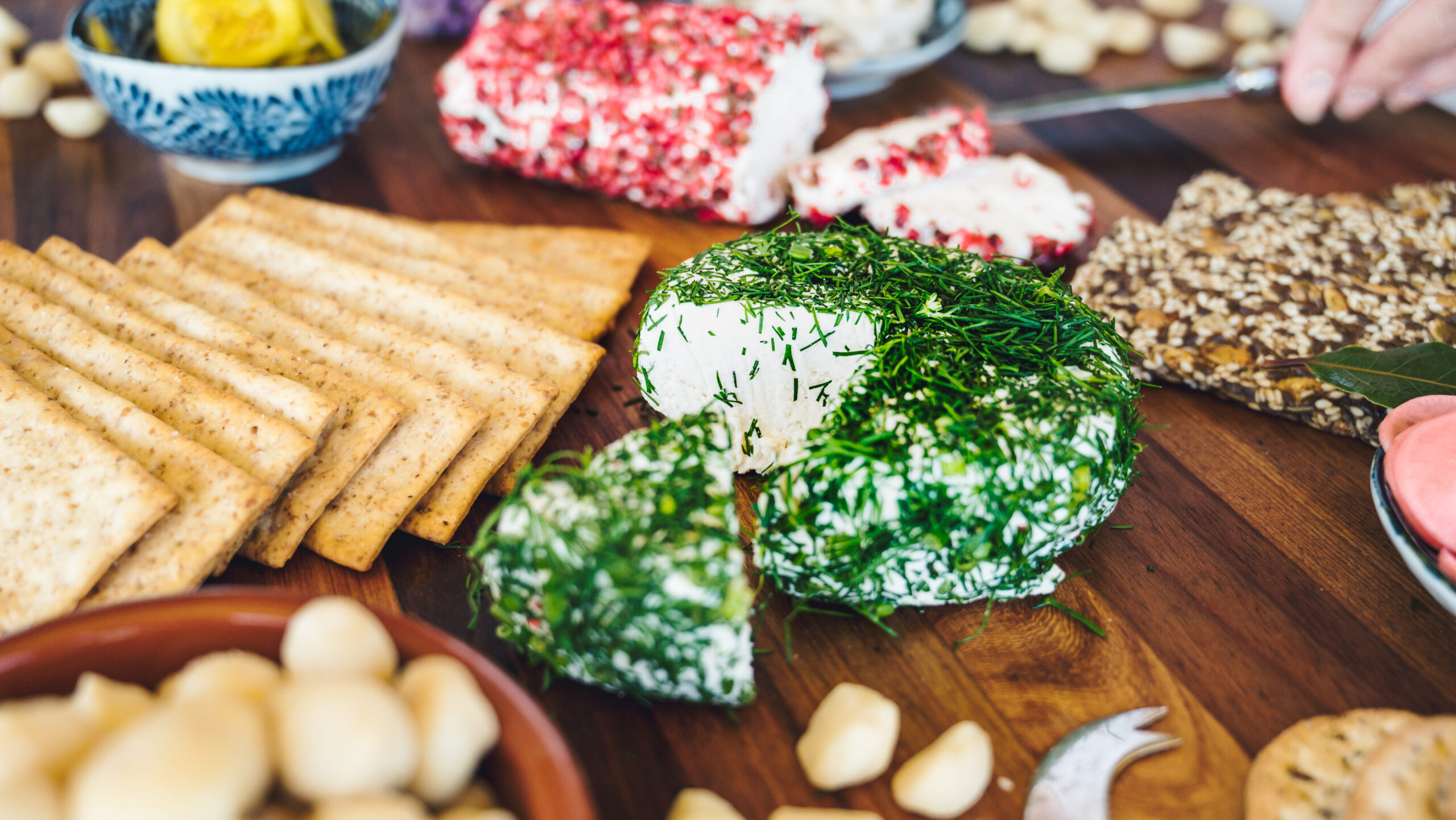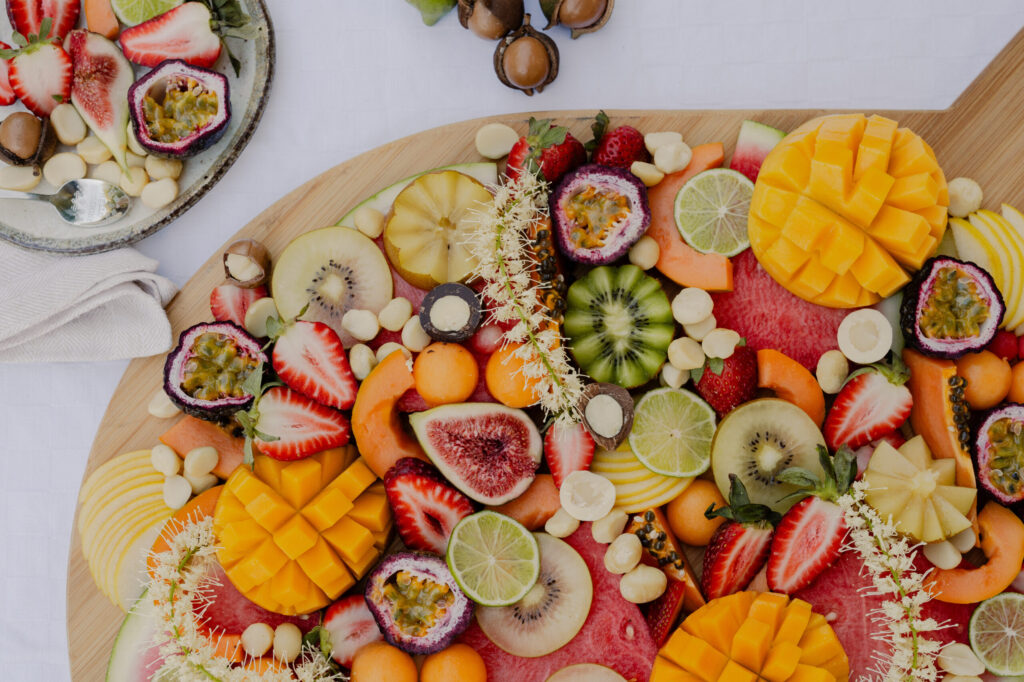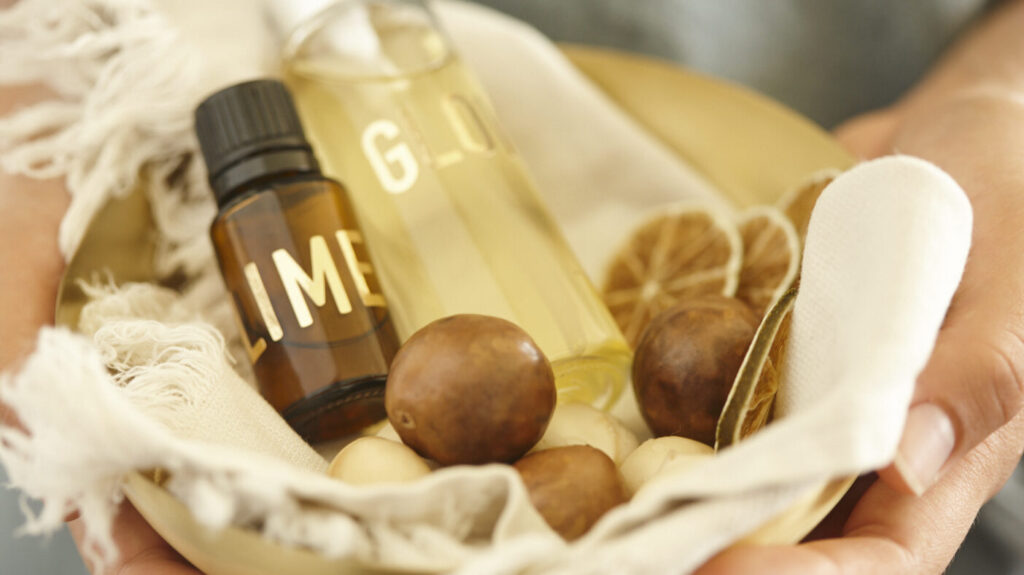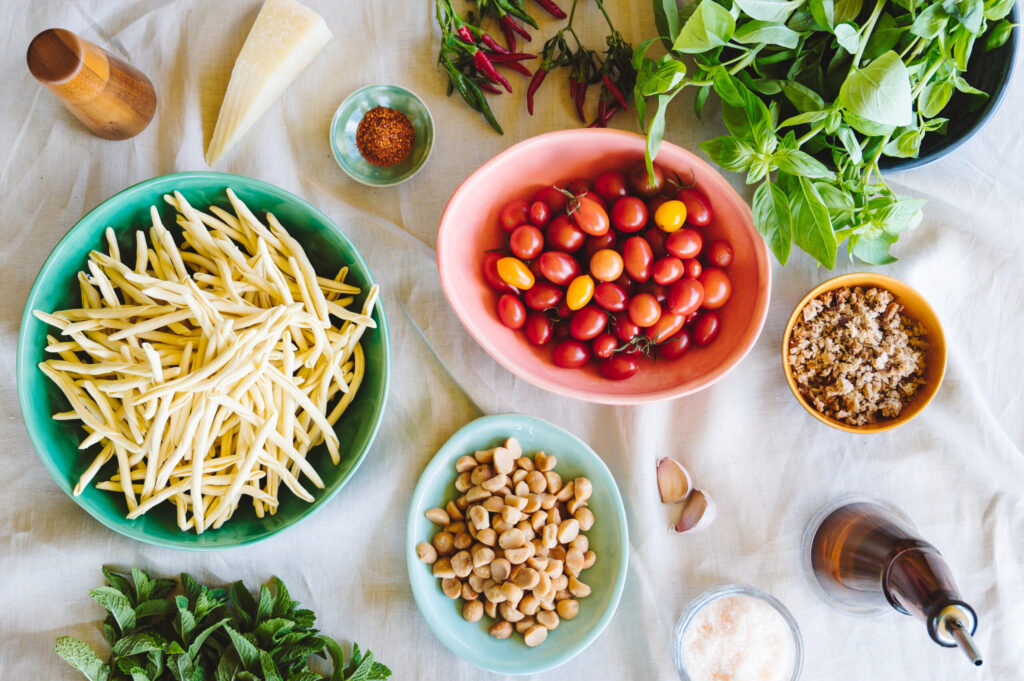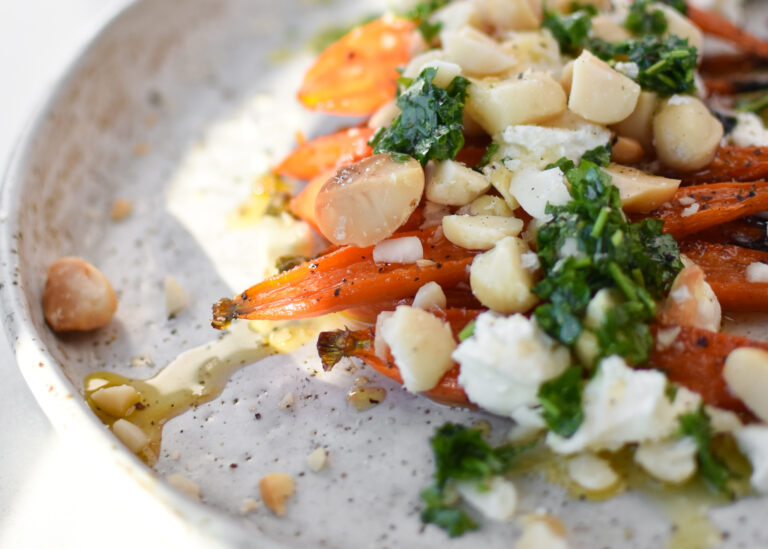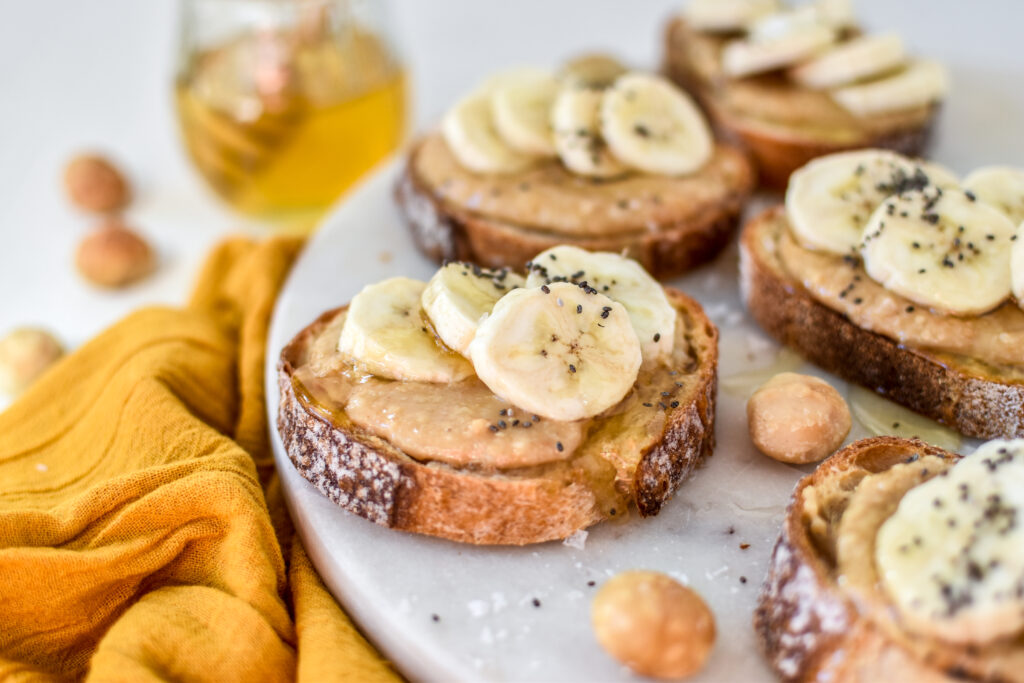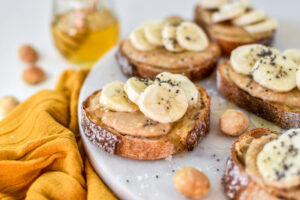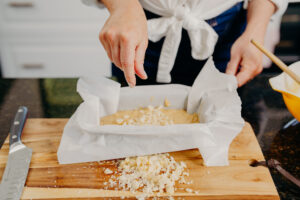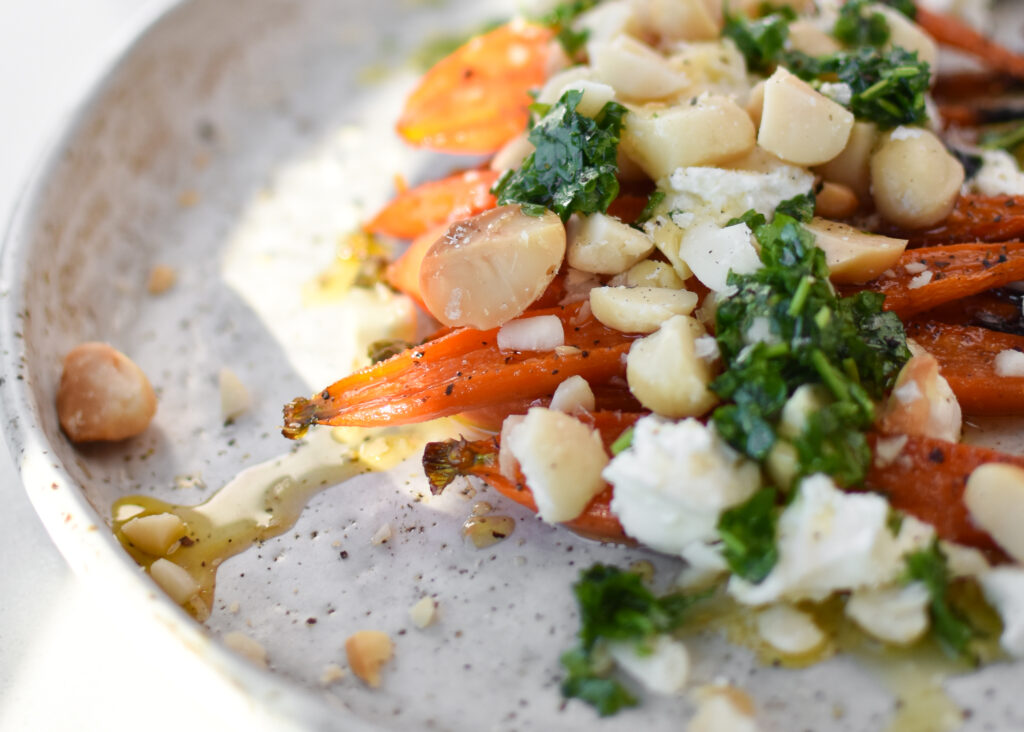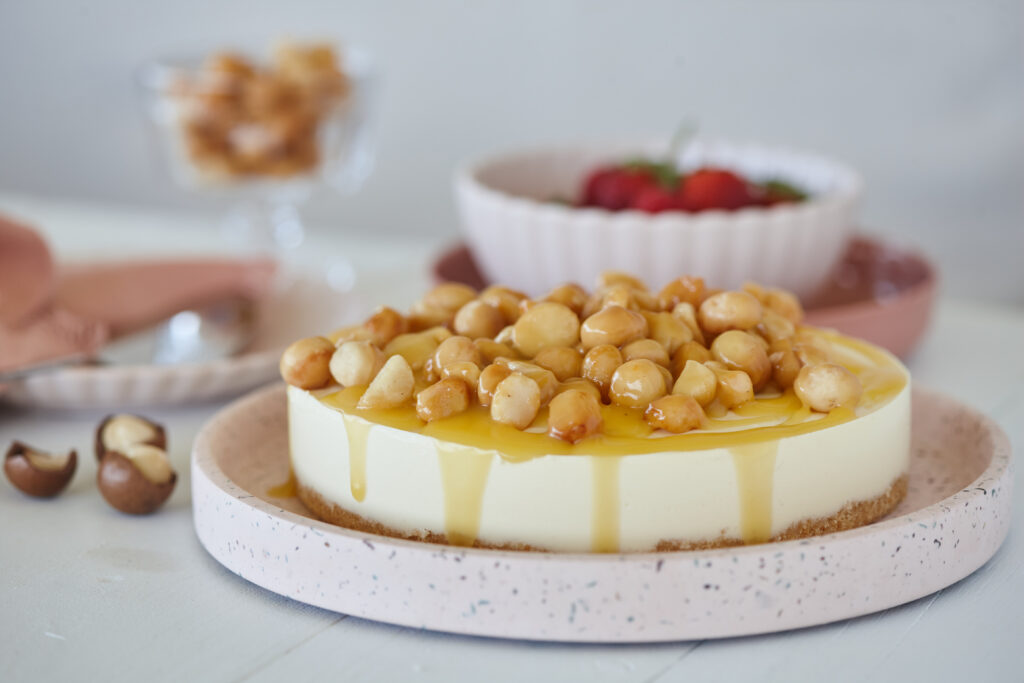Our bodies are made up of about 30 trillion human cells and 38 trillion bacteria cells. That means we are more bacteria than human1!
Many of these bacteria cells make up part of our gut microbiome – which is the collective term for the whole community of microorganisms living in our gut.
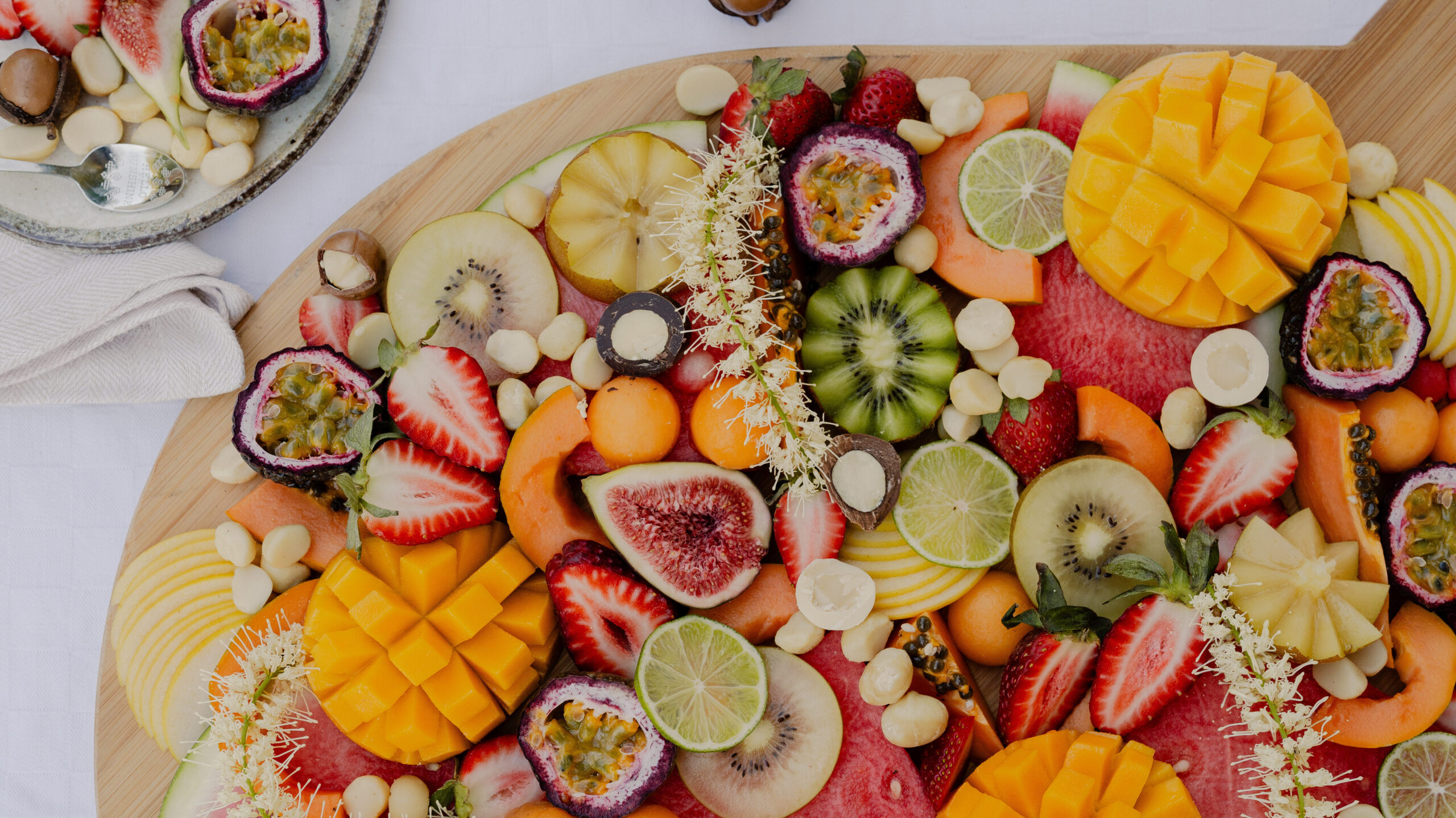
A healthy gut microbiome has both a large quantity and diversity of bacteria, which are important for digestion, and many different areas of our health2.
How to feed your microbiome
Fibre-rich foods
Given that we are more bacteria than human, how we feed that bacteria is very important.
A wholefood diet that nourishes our gut microbiome includes plenty of wholegrains, legumes, veggies, fruits, seeds, and of course, nuts, including macadamias. These foods are rich in prebiotic fibre that provide the food needed to promote the growth of healthy bacteria, which benefit our gut, mental health, and overall health3. Think of these foods as the fertiliser your gut needs to grow a healthy microbiome.
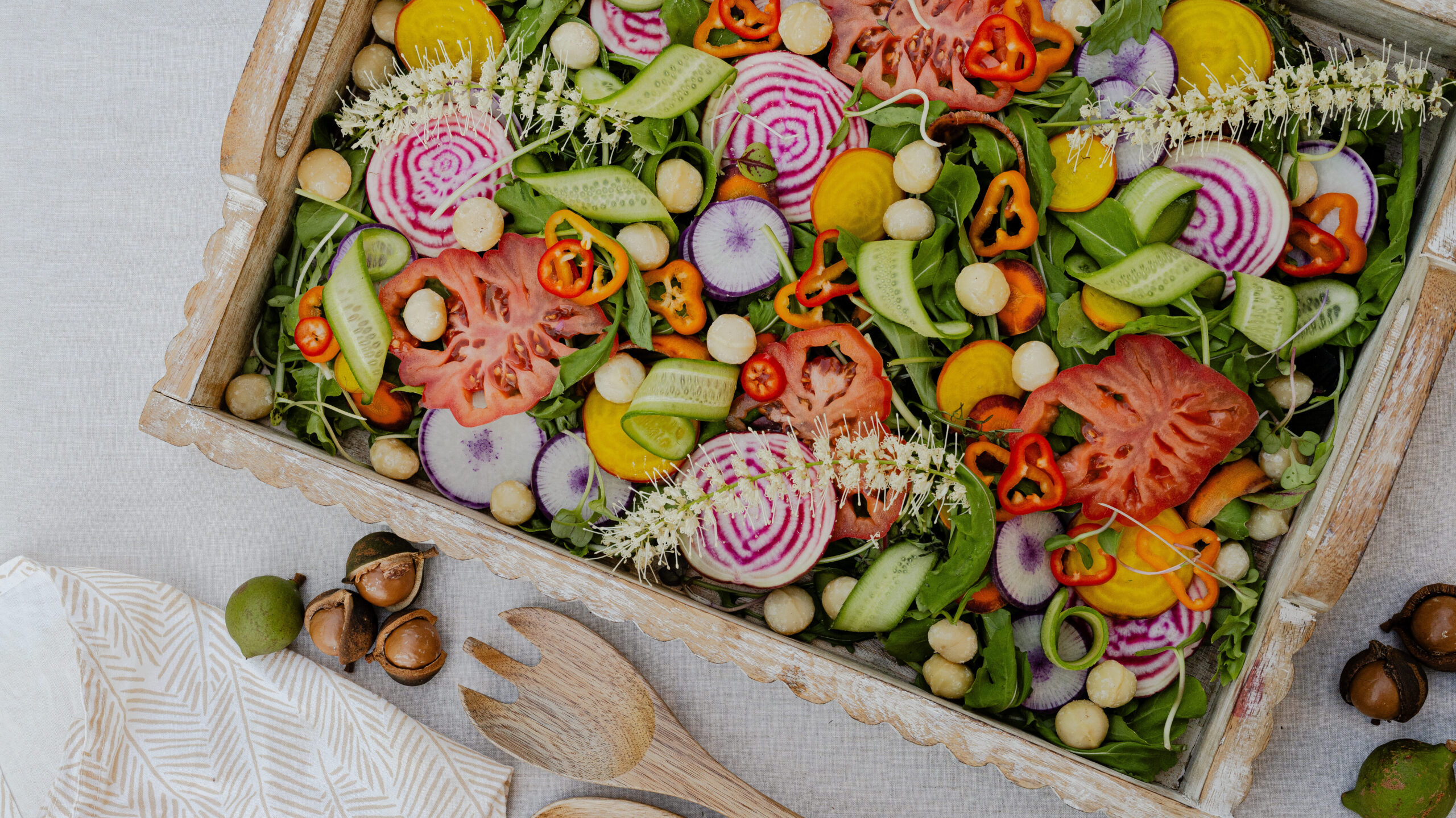
Our guts especially like to be fed a wide variety of different plant foods. In fact, researchers at the American Gut Project found that people who ate more than 30 different types of plants each week had much more varied gut bacteria and a stronger gut microbiome compared with those who ate less than 10 different plant foods a week 4.
Fermented foods
While fibre-rich foods provide your gut with the prebiotics it needs, fermented foods deliver the probiotics – the live, intact organisms themselves.
You’ve probably eaten probiotic-rich ferments like sauerkraut, kimchi, yoghurt and kefir, and you might have tried your hand at making your own ferments at home. You may have made a simple macadamia cheese too. But have you ever thought about making a fermented macadamia cheese? It’s much easier than you’d think and the results are so rewarding.
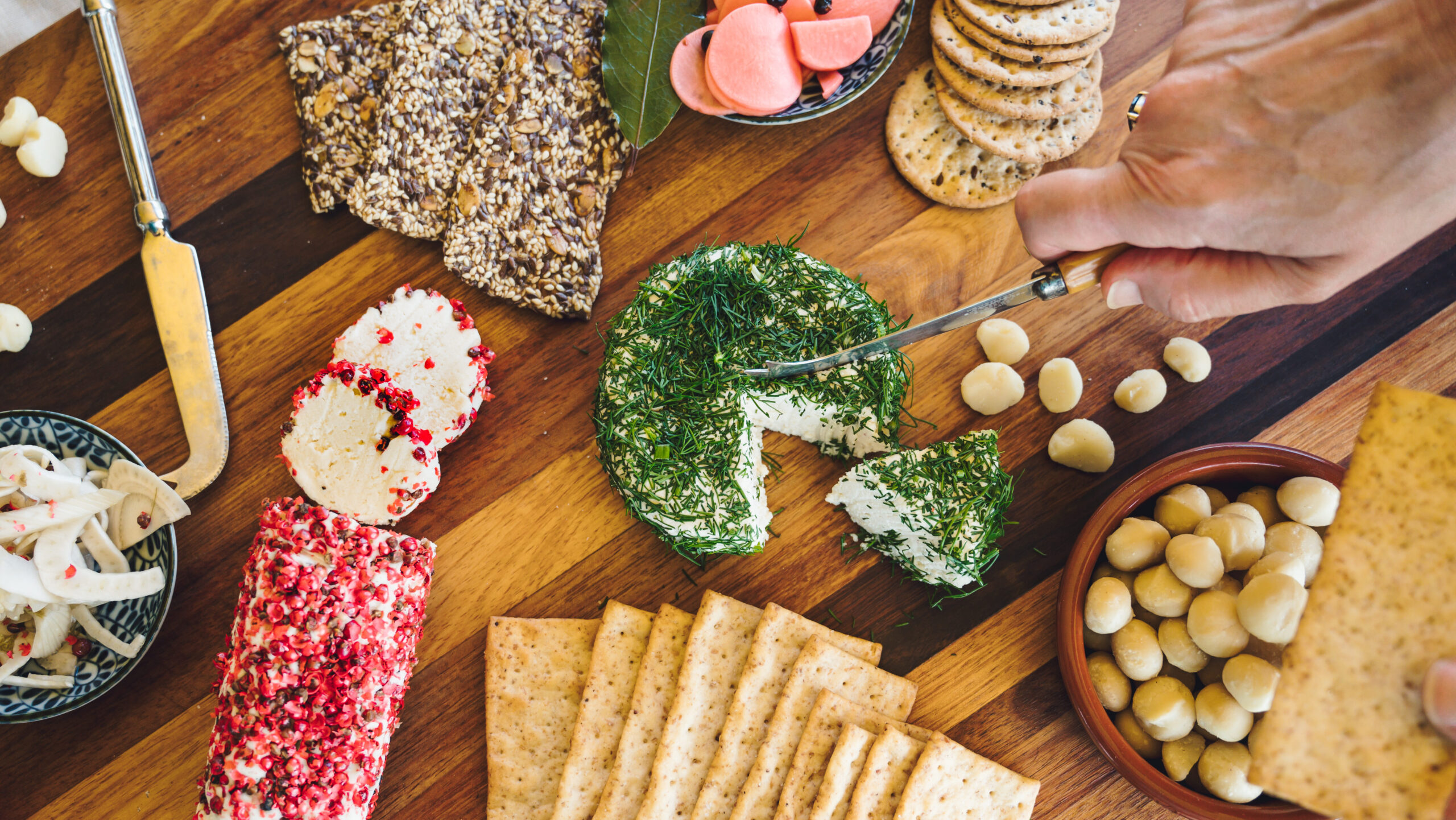
What is fermented nut cheese?
Fermented nut cheese uses probiotics to ferment or ‘culture’ nuts, creating a dairy-free cheese-like product that’s tangy, delicious, good-for-your-guts, and can be used in many different ways.
Adding probiotics to blended nuts and leaving them to sit at room temperature creates a process called lacto-fermentation in the same way as making sauerkraut and other ferments (don’t worry, the ‘lacto’ part refers to lactic acid, not lactose). The beneficial bacteria from the probiotics quietly feed on the naturally-occurring sugars in the nuts, breaking them down into lactic acid, which ferments the nuts.
Just like other fermented foods, fermented nut cheese is a rich source of probiotics with the potential to benefit your gut and overall health by increasing the antioxidant activity of the food and its bioavailability – which is how easily your body digests, absorbs and use the nutrients in food. It’s thought that fermentation does all this by producing beneficial compounds like short-chain fatty acids3.
The fatty acids then play a role in producing the feel-good hormone serotonin5 as well as influencing hormones that affect weight management, appetite, blood sugar levels and our immune system6.
The big side benefit of fermenting nuts? It makes them taste cheesy!
How do you make fermented macadamia cheese?
Macadamias are especially good for making fermented nut cheese, because there are no skins to remove and their buttery texture means they easily blend to a smooth paste.
And after many taste tests, we can confidently say that fermented macadamia cheese simply tastes better than cheeses made from other nuts.
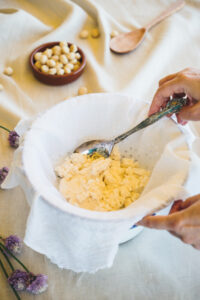
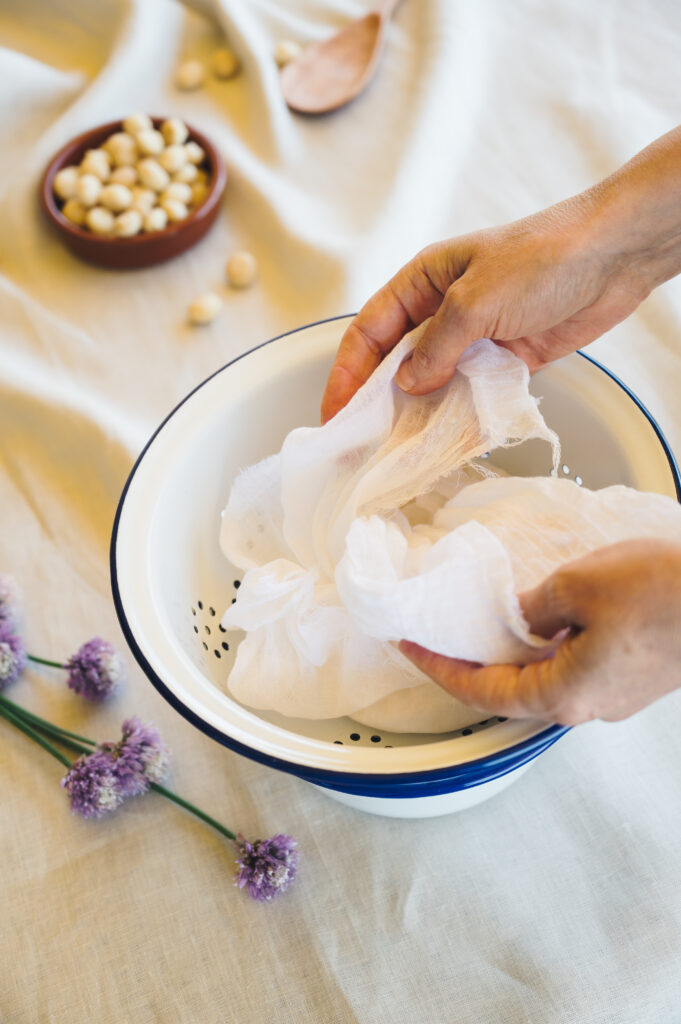
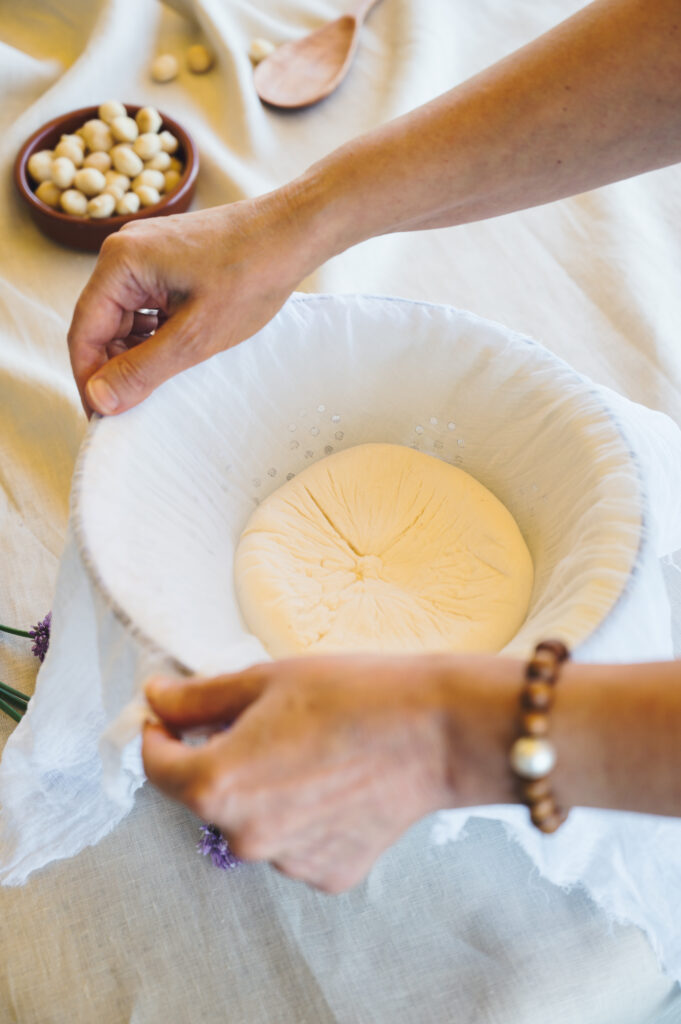
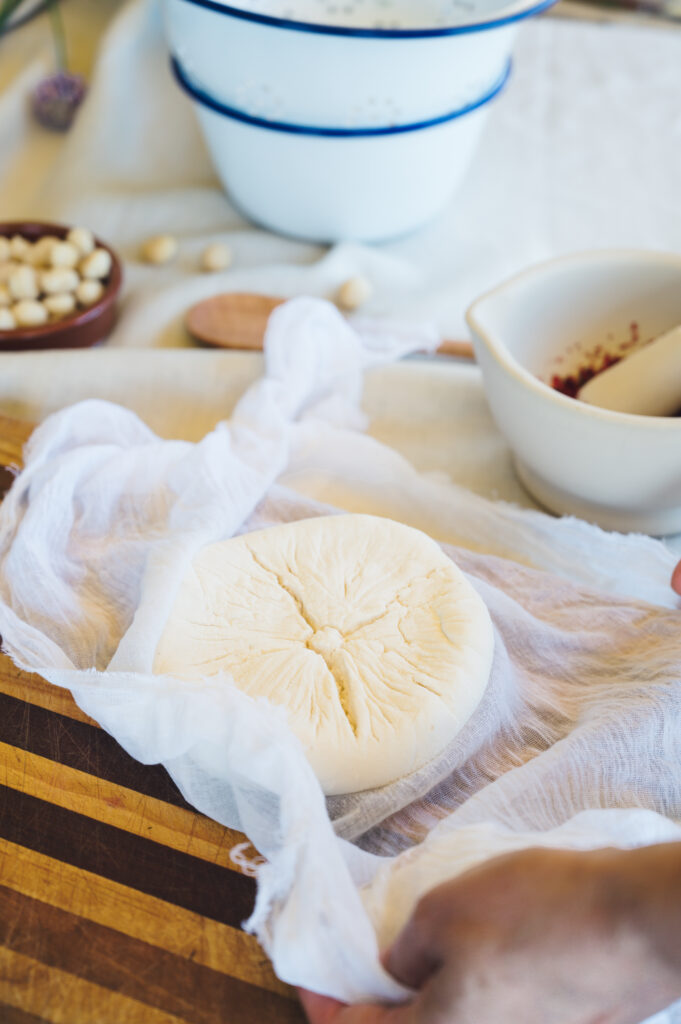
Making the cheese takes a little bit of time for the fermentation to take place, but takes very little active effort from you. It’s a simple and fun process that involves soaking your macadamias, blending them with natural flavours like garlic, onion and miso, and then folding through some probiotics.
The mixture sits on your kitchen bench for 24–48 hours, draining through muslin while the probiotics do their magic, turning your macadamia paste into a cheesy ferment. Our easy recipe takes you through the process step-by-step.
How do you use fermented macadamia cheese?
Fermented macadamia cheese is seriously delicious, incredibly versatile, and a little bit addictive! It’s best used raw (heat will kill the beneficial probiotics) in the same ways you use cream cheese, soft feta or goat cheese. Try it:
- simply spread on toasted sourdough bread, wholegrain or seedy crackers for a quick snack
- crumbled onto a salad or a lunchtime harvest bowl
- on a cheeseboard with crackers, pickles, fresh fruit, and quince paste
- sliced and scattered on homemade pizza after you take it out of the oven.
Are you ready to make some cheese?
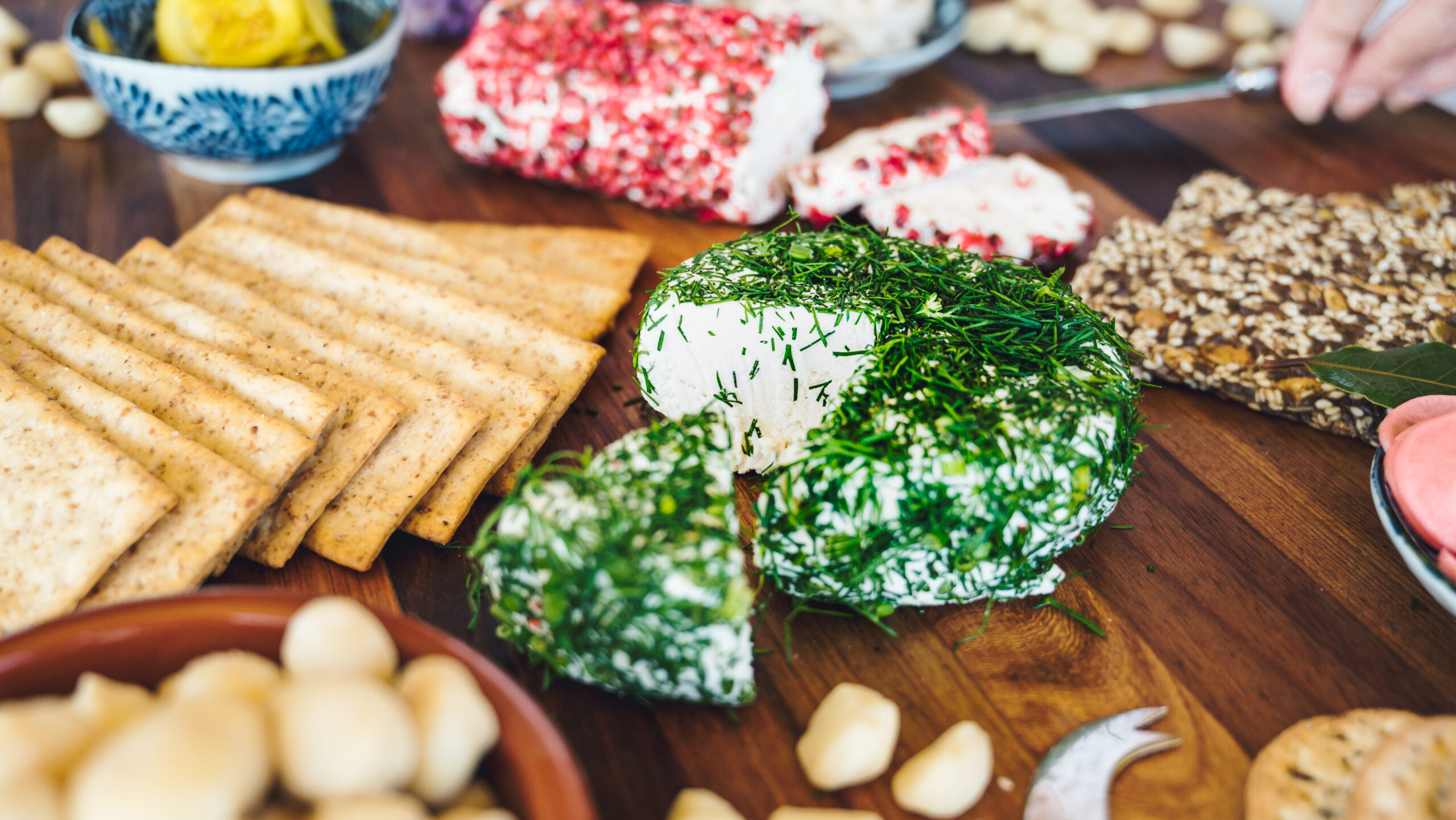
This article was written for Australian Macadamias by Andrea Ball from The Green Gourmet, a wholefoods educator who helps people rediscover the natural connection between food, health and joy. Find out more at www.thegreengourmet.com.au and @thegreengourmetco
References
- 1. Sender, R., Fuchs, S., & Milo, R. (2016, August). Revised estimates for the number of human and bacteria cells in the body. PLOS Biology. https://doi.org/10.1371%2Fjournal.pbio.1002533
- 2. Vijay, A., & Valdes, A. M. (2021, September 28). Role of the gut microbiome in chronic diseases: A narrative review. Nature News. https://www.nature.com/articles/s41430-021-00991-6
- 3. Deakin University Food and Mood Centre. (2022, October 25). The optimal diet for a healthy gut. FutureLearn. https://www.futurelearn.com/info/courses/food-and-mood/0/steps/71379
- 4. McDonald, D., Hyde, E., Debelius, J. W., et al. (2018). American Gut: An open platform for citizen science microbiome research. mSystems, 3(3). https://doi.org/10.1128/msystems.00031-18
- 5. Banskota, S., Ghia, J.-E., & Khan, W. I. (2019). Serotonin in the gut: Blessing or a curse. Biochimie, 161, 56–64. https://doi.org/10.1016/j.biochi.2018.06.008
- 6. Martin, C. R., Osadchiy, V., Kalani, A., & Mayer, E. A. (2018). The brain-gut-microbiome axis. Cellular and Molecular Gastroenterology and Hepatology, 6(2), 133–148. https://doi.org/10.1016/j.jcmgh.2018.04.003
